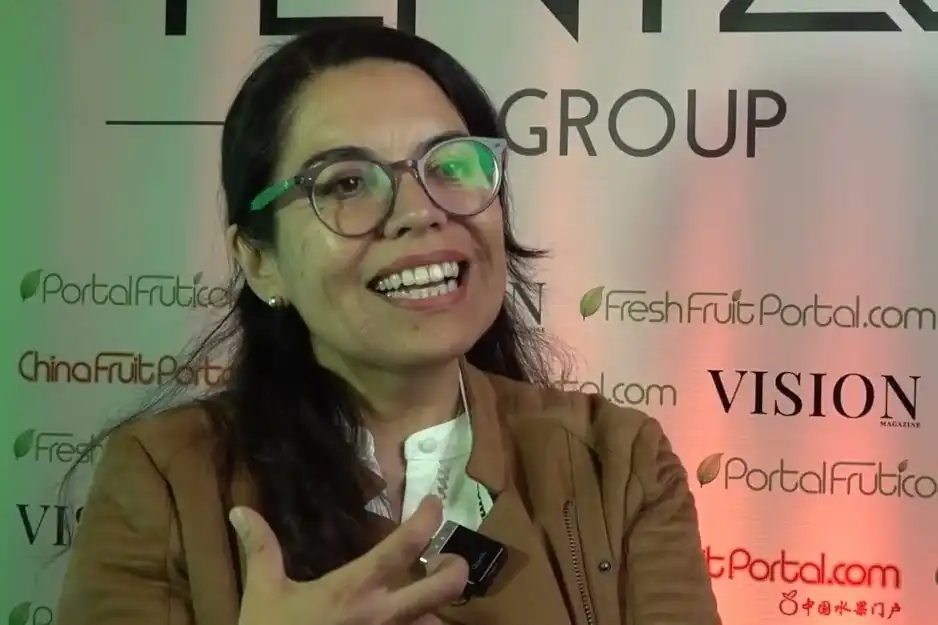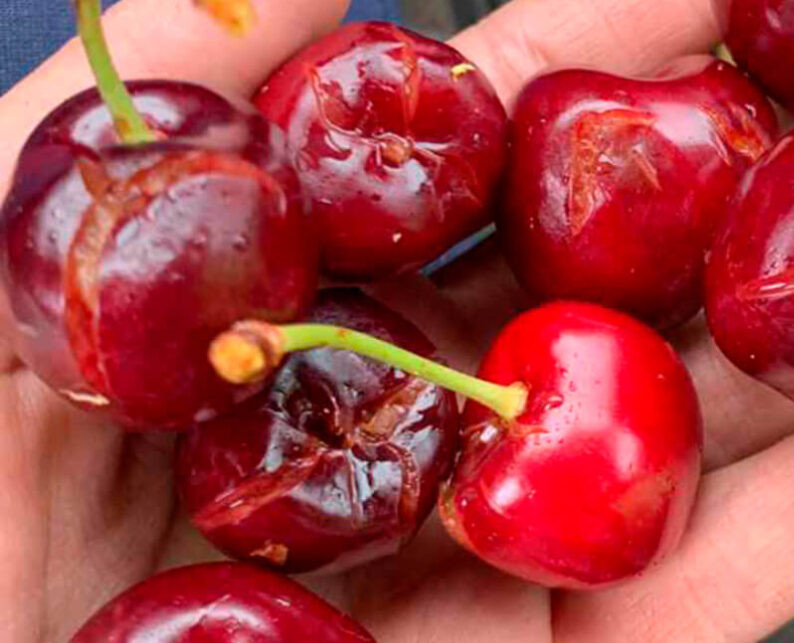The Centro Fruticultura Sur has 7 R+D+i projects in different areas and species, one of them being the "Programme for the genetic improvement of cherry rootstocks led by the Centro de Estudios Avanzados en Fruticultura (CEAF), whose Director and Deputy Director are Dr. Mauricio Ortíz and Dr. Ismael Opazo, respectively.
The objective of this project is to create and study the behaviour of new selections of clonal rootstocks for cherry focused on the edaphoclimatic conditions of the central-southern zone of Chile.
Within the framework of this project, between 2021 and 2022, 3 demonstration plots were established at the Universities of Concepción (UDEC), La Frontera (UFRO) and Austral de Chile (UACH), with 10 selections of cherry rootstocks, plus 2 commercial controls: Gisela 12 and Colt.
The importance of this initiative is that, thanks to it, it will be possible to know the behaviour of these selections in the southern part of the country, particularly in the Ñuble, Araucanía and Los Ríos regions, which will be of great importance for the advanced selection process. Over the course of 2-3 seasons, these selections will be evaluated in terms of their phenology and their tolerance/resistance to biotic and abiotic stresses, and then, in subsequent years, production evaluations will be carried out.
Continuing this work, in which various crosses are made from year to year, a new delivery was made between 4 and 5 October 2023, this time of the cherry rootstock selection 'CEAF 197408', which grafted the varieties Lapins (Chillán) and Regina (Temuco and Valdivia).
 Image 1: Rootstocks delivered at the experimental station "El Nogal", Faculty of Agronomy, Campus Chillán (Ñuble Region).
Image 1: Rootstocks delivered at the experimental station "El Nogal", Faculty of Agronomy, Campus Chillán (Ñuble Region).
The genotype delivered is new; it corresponds to a cross between Prunus cerasus and Prunus incisa, so it is a close relative of early flowering cherry trees of moderate vigour. In this regard, Dr. Opazo points out that 'this genotype multiplied easily and healthy plants were observed in the first growing season that met the initial parameters of nursery suitability (upright growth, health and vigour)'.
"That is why it is interesting to start assessing its production potential and at the same time its tolerance to biotic and abiotic stresses, which will be done in the following seasons.
 Image 2: Rootstocks delivered at the Estación Experimental Agropecuaria Austral (EEAA), Facultad de Ciencias Agrarias y Alimentarias, Isla Teja (Región de Los Ríos).
Image 2: Rootstocks delivered at the Estación Experimental Agropecuaria Austral (EEAA), Facultad de Ciencias Agrarias y Alimentarias, Isla Teja (Región de Los Ríos).
For the Faculty of Agronomy at UDEC, participation in this programme is important because it not only strengthens the networks between the institutions participating in the Centro Fruticultura Sur, but also seeks to provide new rootstock alternatives for cherry growers to establish orchards in the different climatic and soil conditions that can be found in the central and southern parts of the country.
In addition, there is also the possibility to study the behaviour of these rootstocks under cover through the implementation of high tunnels in the unit where the trial takes place.
Importantly, the demonstration plots are available to institutions for future experimentation, student internships, field days and more. In this sense, Dr. Richard Bastías of UDEC emphasises that this project offers the opportunity to promote the training processes of students, through the development of future undergraduate and postgraduate theses on this research topic.
Source: Centro Fruticultura Sur
Images: Centro Fruticultura Sur
Cherry Times - All rights reserved












